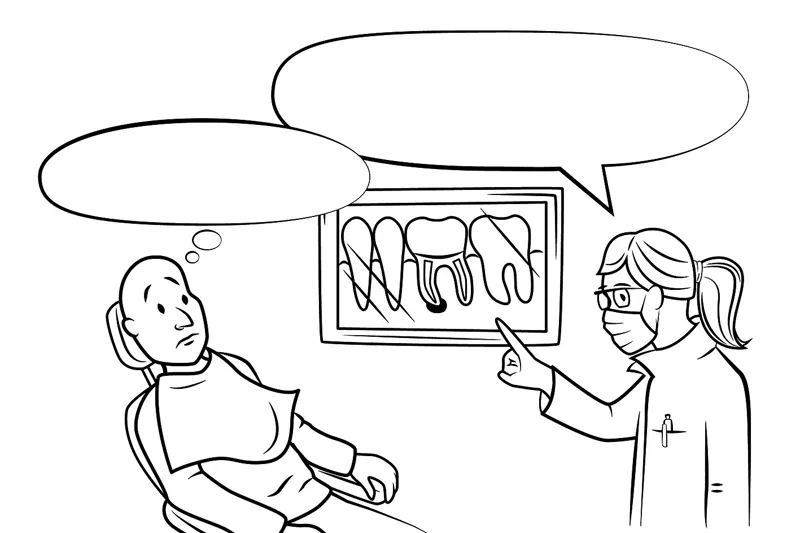Fremtidige retninger for endodontien
I fremtiden må tekniske fremskridt til optimering af de endodontiske behandlinger gå hånd i hånd med forbedrede diagnostiske metoder og en bedre forståelse af sygdomsprocesserne, herunder smertemekanismer og inflammatoriske processer, konkluderer forskere.

Det har en positiv virkning på en patients oralt relaterede livskvalitet, hvis man kan bevare en rodbehandlet tand; men tværsnitsstudier viser, at den tekniske kvalitet af rodfyldninger ofte ikke er optimal. I fremtiden må flere tandlæger i almen praksis bedømme sværhedsgraden af hvert enkelt tilfælde og overveje, om man selv skal forestå behandlingen eller henvise til en kollega med større kompetence. Konceptet minimalt invasiv behandling er blevet anbefalet i forbindelse med kavitetsudformning, instrumentering og regenerative behandlinger, men desværre mangler der longitudinelle kliniske studier inden for dette felt. Der er også behov for mere forskning inden for områderne smertemekanismer, inflammatoriske processer, helingsmekanismer og systemiske tilstandes betydning for sygdomsudviklingen. Infektionskontrol, antibiotikaresistens og nye antibakterielle behandlingsmuligheder er ligeledes emner, der nødvendigvis må udforskes i fremtiden. Vi må forvente større detailstyring af tandplejen, herunder endodontien, fra sygesikringens og myndighedernes side. Den vigtigste investering i udformningen af endodontien i fremtiden er en forbedring af ydelsernes kvalitetsniveau via uddannelser af høj kvalitet. Sundhedsmyndigheder og medier kan dermed præsentere endodontisk behandling som en sikker, pålidelig og effektiv behandlingsmulighed, der er til gavn for patienterne.
Klinisk relevans:
Det endodontiske fagområde har de senere år undergået en hastig udvikling med nye begreber, materialer, instrumenter og teknikker, men udførelsen af behandlingerne er stadig teknisk krævende og frustrerende for den praktiserende tandlæge. Der mangler videnskabeligt validerede data og kliniske undersøgelser med lang observationstid til at begrunde valget af materialer og redskaber. Verden over er der behov for kompetente undervisere, bedre faciliteter, integration af ny teknologi, tid til forskning samt økonomiske resurser. Forskningen skal ikke kun rettes mod tekniske nyskabelser, men også mod grundforskning inden for områder som smertemekanismer, sygdomsprogression og infektionskontrol.Future directions in endodontics
Preserving a tooth with root canal treatment (RCT) has a positive impact on the patient’s oral health-related quality of life. However, cross-sectional studies show that technical quality of root fillings is less than optimal. In the future, more dental practitioners need to evaluate case difficulty and decide on whether they want to treat a tooth or refer to a specialist. The concept of minimally invasive treatment has been advocated during cavity preparation, instrumentation, and regenerative procedures. Unfortunately, long-term clinical outcome studies are lacking in this area. Research in pain mechanisms, inflammatory processes, the impact of systemic health on disease progression, and healing mechanisms is scarce. Infection control, antibiotic resistance and new antibacterial treatment regimens are issues to address in the future. We may anticipate increased regulation and administration of dental, including endodontic, services through insurance schemes and government involvement. Improved quality of service provision through a high standard of dental education is the most important investment to shape endodontics in the future. Health authorities and media may then present endodontic treatment as a safe, reliable, and effective option that is performed to benefit patients.


